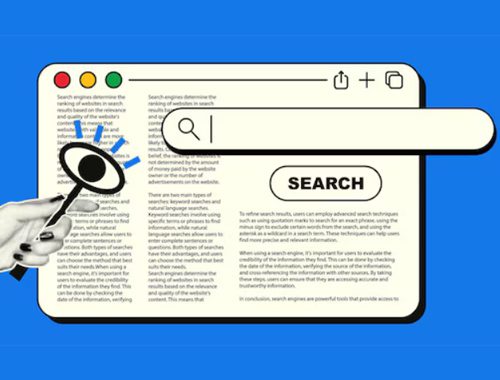Google’s Take on AI-Generated Content
There is no doubt that when it comes to the web, content is king. Be it written, stills, visual or musical; these are both the selling points and the sales themselves. An astounding amount of meticulous hard work goes into the backend to generate and launch these pieces of content on the internet. If you are a regular consumer, then the increase in technological advancements around content creation is not news to you. In recent years, the development is evident as every new feature helps to ease the process. While these expansions are benefiting, the deployment of AI-generated content is one thing to add a question mark on. The argument of generating flawless, unique, and befitting content within minutes speaks volumes; but at the end of the day, the written content has to serve not only the public but also the deployer. This is where Google (the largest and biggest search engine) and its game-changing take can factor in.
The Opinion
It has been an ongoing debate amongst SEO practitioners and SEO writers whether these automatically generated written pieces are considered valid for ranking and optimization purposes. In a recent conference, reputed representatives from Google scraped the ice to make things clear.
John Mueller (Search Advocate @Google) states that AI-generated content falls under the category of automated content; which is considered spam in the Webmaster’s list of protocols. This marks Ai-generated content as spam too, making it unacceptable from Google’s point of view. He further stated around the lines that there is a possibility of an increase in the quality of these auto-generated written matters but in essence, they are machine-generated, and hence they can’t be seen any different from shuffling words around or doing any translation trick.
While the executive cleared long-lasting doubts amongst industry professionals, as the use and nature of Ai-generated content are increasing it is certain that there will be further developments in this realm.
 Can Google Detect AI-Generated Content?
Can Google Detect AI-Generated Content?
Something like this was bound to come up sooner if not immediately. After all, it is a major aspect that could decide o the continuity of implementing AI-generated content for professional and ranking purposes.
While we already know Google’s fair opinion on it, there has never been an indication from Google about a protocol, system, strategy, or actions that could differentiate a piece of written content by a human from any machine-generated content. So for now, the answer is NO. At present, Google cannot detect a piece of AI-Generated content on the web.
However, if the webspam teams recognize automated content, they are sanctioned to take action on it. The executive in the talk believes that the detection element for automatically generated content can seem to be a cat-and-mouse game where there is no fixed say on whether content will get by the radar. And eventually, as Google would have worked on a stack of cases to determine these articles on a larger scale, the ultimate utility of these AI-generated content would be similar to language changing and paraphrasing tools. Where content is initiated through a machine but is refined and made presentable via manual labour.
Should AI-generated content be practised professionally?
The tool is majorly free and constantly improving, the ease of creation is tremendous and the largest internet search engine has conveyed its opinion. They have also conveyed that there is no strict structure to determine these potential spam pieces and also are lacking in the area of creating a definite blueprint for it. So, should you, as a professional, see this as an opportunity?
Well, the extensive use of AI-generated articles is restricted till the time Google or any similar entity cracks open a way to identify automated content on the internet. Learning from the past, Google has always been keen on clearing up any remaining residue. So once it has a strong notion in motion, it will not only keep future-proofing in the clear but will also make sure that the past utilizers of AI-generated written content get penalised in one way or another.
At the same time, there are many entities that are making use of Ai-generated written content like institutions, marketing agencies, and industry professionals. When limited to using this tool as a helping hand in outlining articles, making up a marketing calendar, cross-referencing, and linguistically translating written pieces; these tools can not only make things easy but can help to make your content stand apart.



